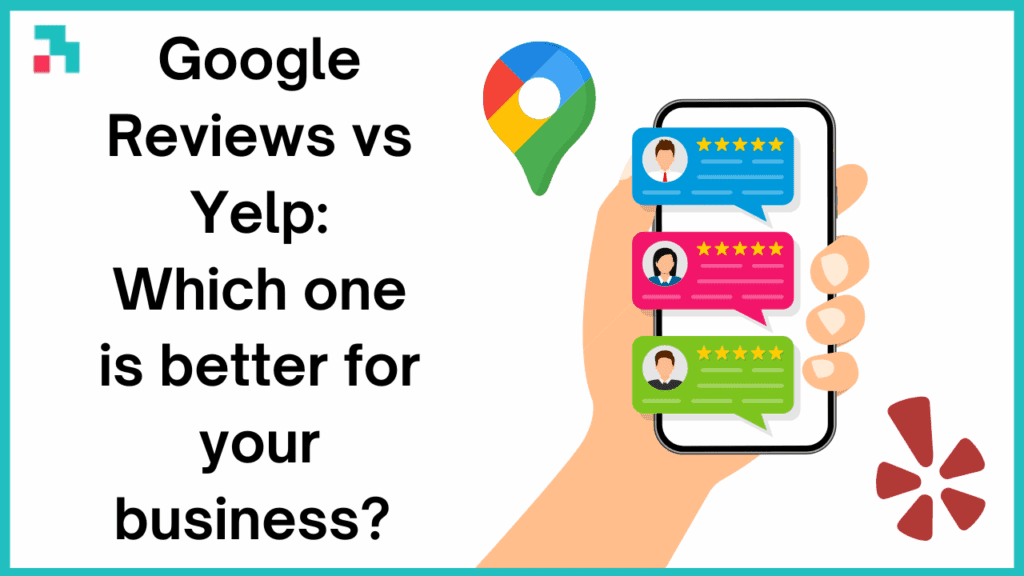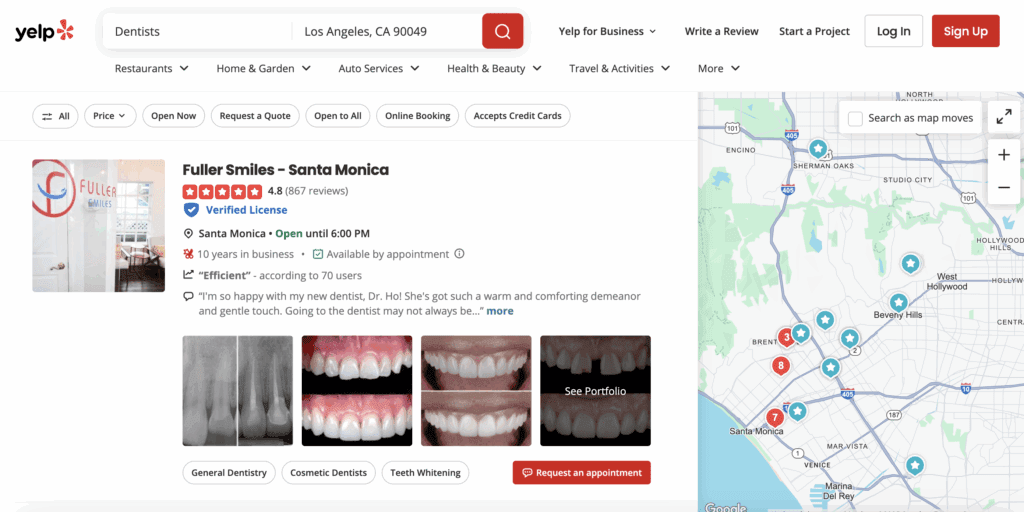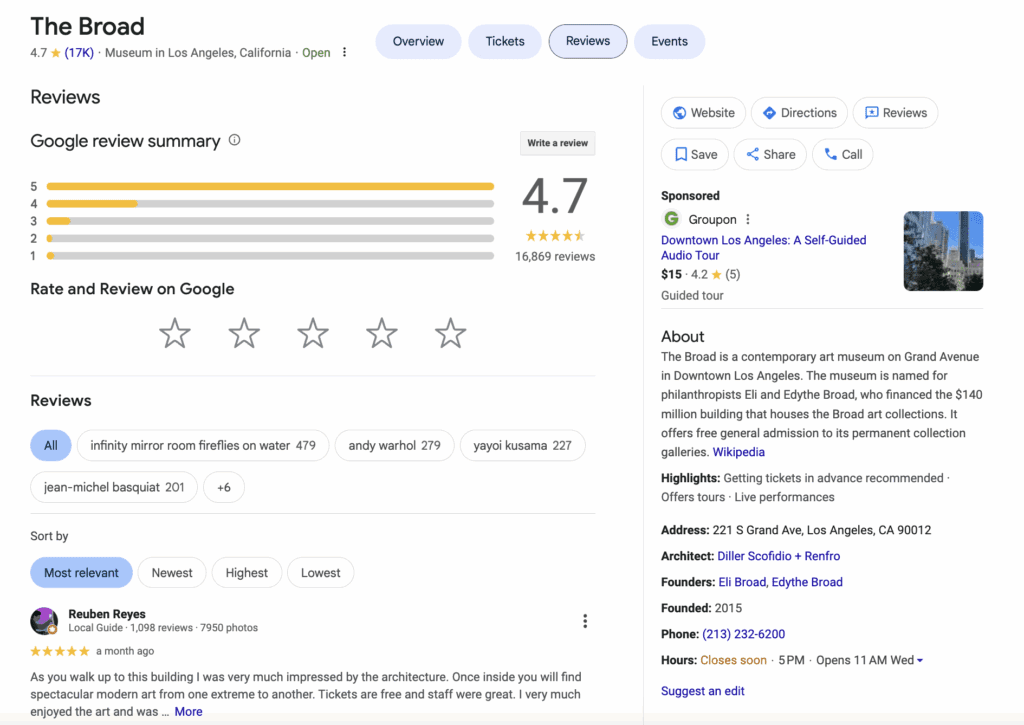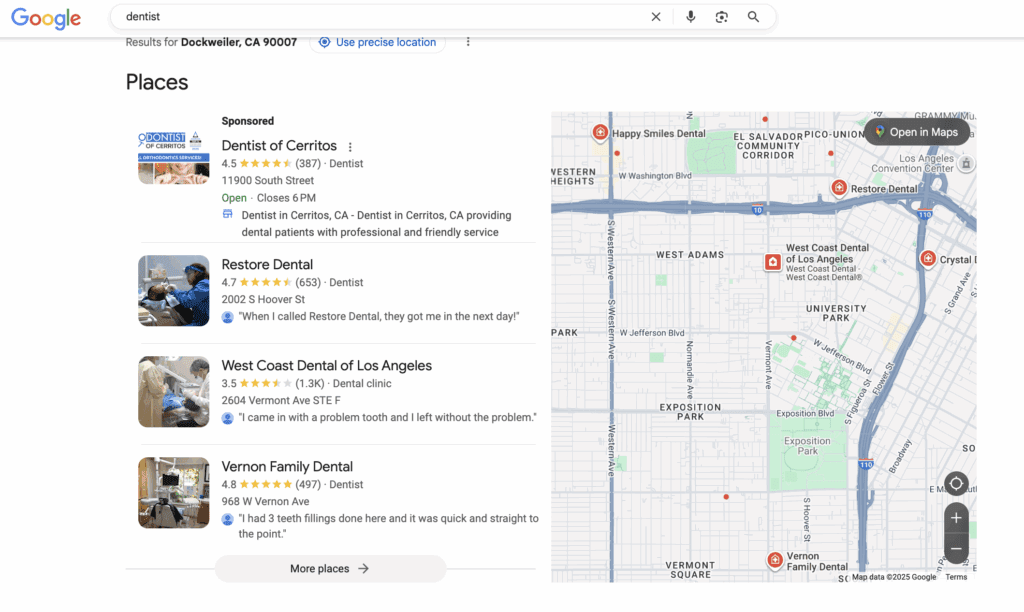The Ultimate Showdown: Google Reviews vs Yelp – Which Reigns Supreme in 2025?

When it comes to online reputation, customer reviews are the heartbeat of business growth. Whether you run a small coffee shop or a nationwide brand, your digital reputation often determines whether customers choose you, or your competitors.
But when it comes to managing and collecting reviews, the big debate remains: Google Reviews vs Yelp: who really wins?
Both platforms play major roles in shaping how customers discover and trust businesses. Word of mouth recommendations still matter, but not like in the old days.
Yelp was the pioneer of the online review scene whereas Google Reviews transformed it by integrating directly with search results and maps.
In this showdown, we’ll break down both platforms, compare their features, and help you decide which one truly reigns supreme for visibility, trust, and growth.
Spoiler alert: for most businesses today, Google Reviews come out on top.
Yelp
What is Yelp?

Yelp, launched in 2004, was one of the first major online review platforms to connect consumers with local businesses.
It became a go-to site for restaurant recommendations, beauty salons, hotels, and service providers. Over the years, it built a strong community of reviewers who value authenticity and detailed feedback.
Features such as photos and elaborate business information keeps prospective customers coming back to see what others have to say about the business they are considering.
If your business is in hospitality or retail especially, Yelp can still be a helpful tool for attracting new customers.
How does Yelp work?
Yelp allows anyone to sign up, find a business, and share their experiences.
Businesses can claim their profiles, respond to reviews, and post updates. Reviews are rated on a five-star scale and often include photos and detailed write-ups.
However, Yelp’s algorithm filters reviews that appear “inauthentic,” meaning many legitimate positive reviews never see the light of day.
For many small businesses, this system can be frustrating and unpredictable, leading to a higher focus on Google reviews.
Yelp Pros and Cons
Before diving into which platform is better, it’s worth understanding what Yelp does well and where it struggles.
Yelp’s strengths lie in its passionate community and niche focus, while its weaknesses stem from algorithmic limitations and limited SEO impact.
Pros
Yelp Pros Overview
Yelp’s biggest advantage is its strong community-driven culture. Users on Yelp take reviewing seriously, often providing detailed insights that help others make informed decisions.
For service-based and hospitality businesses, Yelp remains a vital space for word-of-mouth marketing.
Detailed Advantages
- Community credibility: Yelp users are known for their thoroughness. Many reviews include photos, tips, and context, helping new customers feel confident.
- Focused niche: Yelp’s strongest category is food and lifestyle businesses such as restaurants, cafes, salons, and fitness studios, all which benefit the most.
- Business interaction: Business owners can respond to reviews and showcase their personality, helping them build relationships with customers.
- Promotional tools: Yelp Ads and check-in offers allow businesses to increase visibility within the app and attract more local traffic.
Why Yelp Still Matters

Despite its age, Yelp remains a respected platform in local search, especially for service-based industries.
Its detailed, story-like reviews foster community trust. For restaurants, bars, and local boutiques, Yelp can still drive real traffic.
However, for other industries, its influence is waning compared to Google’s massive reach.
Cons
Yelp Cons Overview
While Yelp helped define online reviews, it also created frustrations for business owners.
The site’s strict review-filtering algorithm and pay-to-play reputation have caused controversy over the years.
Detailed Drawbacks
- Aggressive filtering: Yelp’s algorithm can hide legitimate positive reviews if they seem “too favorable” or written by infrequent users.
- Ad pressure: Businesses often feel pressured to buy Yelp Ads to gain visibility, leading to perceptions of bias. That, or they are ruled out by financial constraints.
- Limited SEO benefit: Yelp pages rank well in Google results, but reviews themselves don’t boost your own business’s SEO.
- Small active base: Yelp’s audience, while loyal, is much smaller than Google’s—making it less valuable for exposure.
The Yelp Challenge for Modern Businesses
For today’s entrepreneurs, Yelp can feel outdated and restrictive.
While it works well for niche industries, the platform’s limited reach and filtering system often frustrate small business owners trying to manage reputation organically.
Now that we have a full picture of what Yelp is all about, let’s examine Google reviews and what businesses need to know in our Google reviews vs Yelp comparison.
Google Reviews
What are Google Reviews?

Google Reviews are integrated into Google’s ecosystem, appearing directly in Search and Maps whenever someone looks up your business.
These reviews show up instantly, influencing first impressions before potential customers even visit your website.
This integration makes Google Reviews a cornerstone of local SEO and digital credibility, and it has been for years.
How do Google Reviews work?
Customers can leave a review directly on your Google Business Profile using just their Google account.
Each review contributes to your average star rating and can include photos and written feedback.
Looking For Google Reviews? Claim your Discount Below
Google uses this data to influence your search ranking: more positive, high-quality reviews can help you appear higher in local search results.
This makes Google Reviews a game-changer for businesses looking to improve visibility and build trust. Google reviews are a huge part of reputation management for businesses.
Google Reviews Pros and Cons
Google Reviews have become the gold standard for digital reputation management.
Their seamless integration with Google Search and Maps gives businesses instant exposure to a massive audience. But like any platform, there are both benefits and drawbacks.
Pros
Google Reviews Pros Overview
The true power of Google Reviews lies in visibility and accessibility. Every time someone searches for “best pizza near me” or “local plumber,” Google Reviews influence the ranking and credibility of the listed businesses. It’s where decisions happen in real time.
Detailed Advantages
- SEO superpower: Google Reviews directly affect your business’s ranking in Google’s local search results. The more positive reviews, the more visibility you gain.
- Wider audience: With billions of Google users, you reach customers beyond a niche audience.
- Instant accessibility: No need for an app; customers can leave or read reviews straight from their browser or phone.
- Higher conversion rates: People searching on Google are ready to buy or book, making Google Reviews more action-driven than Yelp.
- Ease of management: Businesses can reply to reviews directly from their Google dashboard, improving communication and transparency. It is incredibly simple to manage your Google reviews.
Why Google Reviews Are a Game-Changer

Simply put, Google Reviews aren’t just about reputation: they’re about visibility, local SEO, and growth.
Every positive review strengthens your brand’s authority and improves search ranking. For most businesses today, investing in Google Reviews is essential for staying competitive online.
Cons
Google Reviews Cons Overview
While Google Reviews are incredibly powerful, they’re not perfect. The platform’s open nature makes it easier for spam or fake reviews to slip through, which can hurt a business’s credibility if not managed carefully.
Detailed Drawbacks
- Spam vulnerability: Fake reviews can occasionally appear, requiring monitoring and reporting.
- Fewer long-form reviews: Compared to Yelp’s detailed posts, Google reviews are usually shorter and more casual.
- Ongoing maintenance: To see consistent growth, businesses must actively encourage reviews and respond to feedback.
- Review removals: Google occasionally removes reviews flagged for violations, which may lower your total count temporarily.
Managing the Downsides
While Google Reviews require consistent attention, the benefits far outweigh the challenges.
Regular monitoring and professional responses can quickly stomp out spam or negativity. With the right strategy, even drawbacks become opportunities for better engagement.
Yelp vs Google Reviews: Which One Is Better?
When comparing Yelp vs Google Reviews, the difference boils down to audience size, usability, and business impact.
Yelp thrives in niche markets, but Google dominates global visibility. If your goal is growth, traffic, and conversion, Google Reviews win in nearly every category.
Let’s take a quick look at each category and see what to expect.
User Base: Google
Google’s user base is unmatched. Every smartphone, every map search, every local query: Google is at the center of it.
Yelp has millions of users, but Google has billions. That means your business can reach a far wider audience simply by optimizing your Google Business Profile.
Review Authenticity: Yelp
Yelp prides itself on curating authentic reviews through strict filtering. Unfortunately, this system often hides legitimate reviews.
Google’s open approach means more voices are heard, giving potential customers a fuller, more balanced picture of your business.
User Intent: Google
User intent is the real differentiator. People on Google are ready to act; they’re looking for directions, phone numbers, or booking options and they need to do something now.
Yelp users are often still browsing or weighing options with more time. Google’s reviews directly connect to sales, appointments, and foot traffic, making it the stronger business growth tool.
FAQs
Is it better to leave reviews on Google or Yelp?
Google is better if you want your feedback to reach more people and influence search results. Yelp reviews help locally but don’t affect your SEO.
Why are Yelp reviews always lower than Google reviews?
Yelp filters many positive reviews, which makes averages seem lower. Google keeps reviews visible unless they violate guidelines.
Do business owners care about Google reviews?
Absolutely. Positive Google Reviews boost visibility, click rates, and conversions. They’re critical for growth.
Why are Google reviews decreasing suddenly?
Google sometimes removes flagged or spammy reviews, or users may delete accounts. Keep encouraging fresh reviews to maintain momentum.
Are Google Reviews better than Yelp?
Yes. They appear directly in search results, influence SEO, and reach a much larger audience.
Do people use Yelp or Google Reviews more?
Google dominates globally, with far higher daily review and search activity.
Is Google Reviews trustworthy?
Yes. While fake reviews exist everywhere, Google’s AI and moderation systems quickly remove fraudulent content, ensuring fairness.
Final Thoughts: Google Reviews Vs Yelp
In the battle of Google Reviews vs Yelp, the verdict is clear—Google Reviews reign supreme. They’re easier for customers to use, more visible in search, and essential for local SEO.
Yelp may still hold weight in specific industries like restaurants or salons, but for most businesses, Google offers broader impact, stronger trust, and measurable growth.
If your business isn’t focusing on Google Reviews yet, now’s the time.
Encourage happy customers to share feedback, respond to reviews quickly, and use management tools like ReputationManage to streamline the process and get more Google reviews.
In today’s digital marketplace, Google Reviews aren’t just about reputation: they’re about being discovered, trusted, and chosen first.
